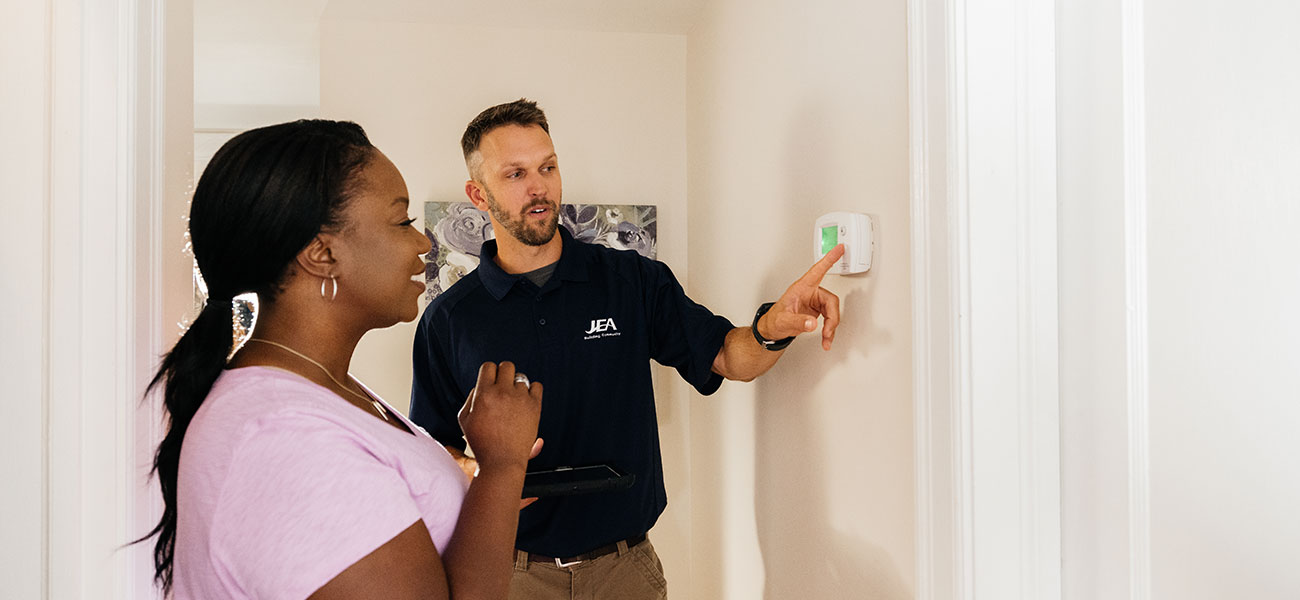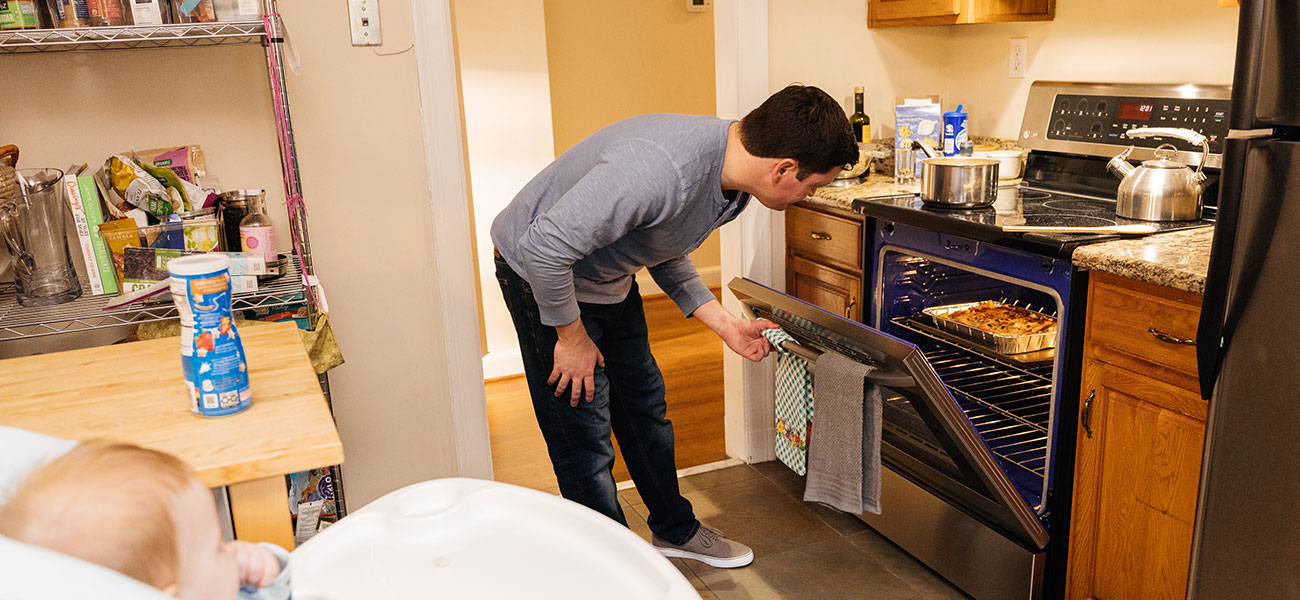New Year's Resolution to Conserve
What’s the fastest way to save money on your JEA bill? Change your habits. This can be harder to do than it sounds. For instance, if you like your home really warm in the winter or really chilly in the summer, you will need to change that habit. So the advice we’re about to give you is not always easy, but it will save you money. Guaranteed.
Just like dieting, don’t try to make too many changes at once. This is a fast route to failure. Instead, try to adopt one energy and/or water saving tip each week. Little by little, your utility bill will go down and you’ll notice a little extra money in your pocket.

Air Conditioning and Heating
Air conditioning and heating consume about half of all the electricity you use.
- Set thermostat at 78° F or higher in summer, 68° F or lower in winter. People shake their head when we say this. But it’s not that hard. Use fans in the summer to help you feel cooler. And put on a sweater and slippers in the winter to help you stay warm. You’ll get used to it. We promise.
- Set thermostat fan setting to “auto.”
- Set temperature 5 to 10 degrees warmer when leaving home for more than one hour in summer (or cooler in winter).
- Change your heating and cooling system air filter. A dirty air filter makes your system work harder, which uses more energy.
- In lieu of turning the thermostat cooler, run ceiling or table fans but remember to turn them off when you leave the room.
- Close shades/blinds to keep heat out in summer.
- Make sure your heating/cooling vents and returns aren’t blocked.
- Keep the exterior portion of your heating and cooling unit free of blockage and debris.
- Seal holes in walls where pipes and wires enter and exit the home
- Put weather stripping around doors and windows to seal gaps.
- Use R38 insulation in the attic.
- Have heating and cooling system checked annually to ensure efficient operation.
Water Heater
- Set water heater to 120° F in accordance with CDC recommendations.
- Turn water heater off when leaving home for two or more days.
- Consider adding an insulation jacket to the hot water tank and insulating the water pipes to retain heat in the system.
Washer/Dryer
- Wash full loads and use cold water to save energy.
- Clean your dryer lint trap after each load so air flows easily.
- Clean lint from inside your dryer exhaust line, and make sure it’s tightly connected and not kinked or compressed.

Refrigerator and Stove
- Inspect your refrigerator seals for leaks by testing tightness with a dollar bill. Inspect leaky gaskets, if it’s still supple it may need realignment. If the gasket is cracking, has tears or is moldy it should be replaced. There are numerous on-line sources to help the do-it-yourselfer with these types of projects or you can hire a professional.
- Keep refrigerator temperature on 38° F but no higher than 40 degrees or you’ll run the risk of growing bacterium that can cause food-borne illness, and freezer on 0° F in accordance with FDA recommendations.
- Don’t use your stove to heat your house.
Lighting
- Change your five most-used light bulbs to CFLs or LEDs.
- CFLs are most effective in fixtures that are on for several hours at a time. They don’t last as long in fixtures that are turned on and off numerous times a day, in those instances LED’s handle the frequent cycling much better. Check the package to make sure you are buying the right bulb for the fixture, purpose, color and wattage you need.
- Always buy ENERGY STAR®-qualified lighting products.
Water
- Make sure the rubber flapper in your toilet tank forms a tight seal to keep water from leaking into the bowl. Leaks can add 50 percent or more to your water bill. This is a BIG water saver. And you can do it yourself. Watch this video to learn how:
- Install a high-efficiency showerhead (preferably below 2 gallons per minute).
- Don’t put cleaning tablets in the toilet tank—they can corrode the rubber flapper and cause it to leak.
- Replace toilets manufactured before 1994 with water efficient toilets.
- Letting water run while you are washing your car can waste 150 gallons of water, so use a shutoff hose nozzle or turn the water off when you're not using it.
- If you have a lawn irrigation system, set it to water no more than twice a week from April through October, and no more than once a week November through March.
- Change your irrigation system control unit battery as directed (every one to three years) to maintain settings after a power outage.
- Check your irrigation rain sensor shutoff device annually for proper operation and maintain in accordance with manufacturer’s recommendations.
Explore Solutions and Save
Learn about all the ways JEA helps Northeast Florida families, businesses and our community thrive and how we can help you do more.
Related Links
-
Free Efficiency Assessments
Using less energy can help make your utility bill more manageable. Schedule your free in home efficiency assessment to get cost effective ideas to lower energy usage at your home.
-
Residential Rebates
Making energy-efficiency upgrades to your home is a smart move. JEA offers a wide range of rebate programs to save you money on home energy upgrades.